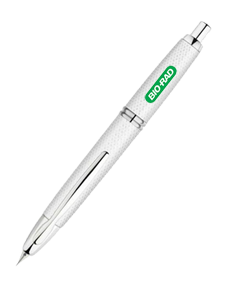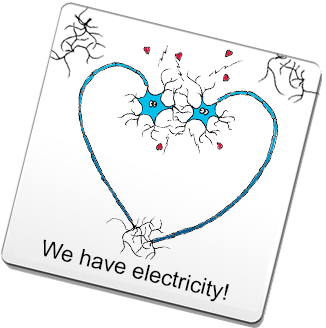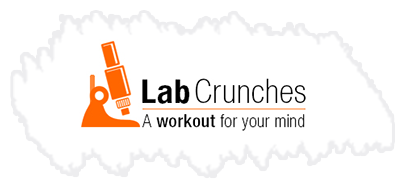
Popular topics

-
References
Ahmad SA et al. (2023). Takotsubo cardiomyopathy. Available from: StatPearls [Internet].
Borovikova LV et al. (2000). Vagus nerve stimulation attenuates the systemic inflammatory response to endotoxin. Nature 405, 458-462.
Carvalho C et al. (2016). Open-label placebo treatment in chronic low back pain: a randomized controlled trial. Pain 157, 2,766-2,772.
Charlesworth JEG et al. (2017). Effects of placebos without deception compared with no treatment: A systematic review and meta-analysis. J Evid Based Med 10, 97-107.
Koopman FA et al. (2016). Vagus nerve stimulation inhibits cytokine production and attenuates disease severity in rheumatoid arthritis. Proc Natl Acad Sci U.S.A 113, 8,284-8,289.
Munnangi S et al. (2023). Placebo effect. Available from: StatPearls [Internet].
Pressman A et al. (2012). Adherence to placebo and mortality in the Beta Blocker Evaluation of Survival Trial (BEST). Contemp Clin Trials 33, 492-498.
Ramesh S and Arachchige ASPM (2023). Depletion of dopamine in Parkinson's disease and relevant therapeutic options: A review of the literature. AIMS Neurosci 10, 200-231.
Stoessl AJ et al. (2010). Effects of expectation on placebo-induced dopamine release in Parkinson disease. Arch Gen Psychiatry 67, 857-865.
Mind Control: Can Your Brain Control How Sick You Get?

It’s well known that the brain acts as the puppet master for many of the different processes that occur in the body, such as movement, emotions, and memory. But what degree of control does the brain have over matters of health and disease? Decades worth of research have been dedicated to working out to what extent an individual’s mental state can impact how sick they get and how well they recover.
So, how strong can “mind over matter” truly be? In this blog, we discuss some of the key findings implicating the brain as a master manipulator of the immune system and disease states.
The Placebo Effect
One of the most notorious testimonies in favor of the brain’s ability to impact physical wellness is the existence of the placebo effect. The placebo effect describes the improvement of a person’s medical condition when a mock treatment has been administered, seemingly based on their perception of the so-called therapy (Munnangi et al. 2023). The effects of placebo treatment have been investigated in many different diseases that affect multiple different organs and systems.
For example, patients with Parkinson’s disease (PD) have shown promising improvements when administered with placebo medicines. PD is a progressive neurodegenerative disorder, which is characterized by a decline in dopamine levels that leads to motor and cognitive decline (Ramesh and Arachchige, 2023). One particular study by Stoessl et al. (2010) specifically investigated the effect of the patient’s expectations of a treatment on their dopamine release.
In this study, PD patients were randomly allocated to four different groups based on the verbal communication they would receive. Patients in each group were told they had a 25%, 50%, 75%, or 100% chance, respectively, of receiving the active drug over the placebo when, in fact, all patients in the study received the placebo regardless of their group. Interestingly, while you may expect those given a 100% chance of treatment to respond the best, only the patients in the 75% probability group showed significant dopamine release. The authors stated that this was in line with previous studies in which dopamine release occurs when a reward is believed to be likely but not certain. Overall, the study revealed that the mere expectation of treatment could cause changes in dopamine production (Stoessl et al. 2010).
Placebo treatments have also resulted in improved outcomes for patients with heart failure. Researchers reanalyzed the data collected from a randomized, placebo-controlled trial to focus specifically on the placebo arm of the study. After separating the placebo group into participants with higher adherence (defined as those who took at least 75% of the placebo medicine over the course of the study) and lower adherence (those who took less than 75%) the researchers found that individuals with high adherence to the placebo had a significantly lower mortality compared to those with low adherence. While fascinating, the authors of the study described the mechanism driving this effect as a “mystery” (Pressman et al. 2012).
Pavlov’s Drug
How placebo treatments can elicit beneficial results is still somewhat of an enigma. It’s typically thought that some degree of trickery is involved, in which the patient is duped into believing they’ve been administered an active drug. Interestingly, however, several studies have found that favorable effects can be conceived even when patients are explicitly told they will be given a placebo (Carvalho et al. 2016, Charlesworth et al. 2017). So, how can this work?
Well, some scientists believe this is a case of classical conditioning, a form of learning in which a specific stimulus provokes an automatic response. Basically, a patient has had a positive response to a pill before, and thus, a placebo pill triggers a pharmacological memory, resulting in a similar positive response to what may just be a sugar pill (Munnangi et al. 2023).
Viva Las Vagus
The vagus nerve can be submitted into evidence as exhibit B for the mind-body connection in the regulation of health and disease. The vagus nerve is actually two nerves, made up of around 100,000 nerve fibers each, that physically connect the brain to the major organs of the body.
A paper published in 2000 made a surprising discovery regarding the role of the vagus nerve on inflammation. Borovikova et al. found that administering an anti-inflammatory agent, CNI-1493, into the brain of rats with acute inflammation in the periphery, elicited a significant amelioration of the inflammation in distant parts of the body. What’s more, these anti-inflammatory effects vanished whenever the vagus nerve of the rat was snipped, indicating a key role of this nerve in directing the peripheral immune response (Borovikova et al. 2000).
As a result of this, scientists have been experimenting with the possibility of targeting the vagus nerve to treat autoimmune diseases. One study showed that stimulating the vagus nerve with an implantable device significantly inhibited the production of the pro-inflammatory cytokine TNF in patients with rheumatoid arthritis and improved the severity of their disease. Similarly, vagus nerve stimulation in patients with epilepsy exhibited significantly reduced pro-inflammatory TNF, IL-1β, and IL-6 production in the blood (Koopman et al. 2016).
Let Your Head Rule Your Heart
A particularly powerful connection seems to exist between the brain and the heart. For example, an exceptionally stressful event can actually provoke the symptoms of heart attack, in a condition known as takotsubo cardiomyopathy, or more aptly, broken heart syndrome. Broken heart syndrome can be triggered by distressing events such as the death of a relative, accidents or major trauma, domestic violence, and financial loss, to name a few (Ahmad et al. 2023).
An unpublished study by Hedva Haykin delved further into the link between an individual's psychological state and their heart health. They stimulated the ventral tegmental area (VTA) of the brain, which is involved with reward processing and positive emotions, of mice who had recently experienced heart attacks. Intriguingly, they found that the hearts of mice who had undergone stimulation of the VTA appeared dramatically healthier than those who had not. They noted that activation of the VTA seemed to provoke changes to the immune system associated with a reduction in scar tissue.
Overall, deciphering the brain's impact on body health could help boost responses to placebo treatments and active drug therapies and might help avoid some health issues and keep our organs healthy. So, while we aren’t suggesting that a positive attitude is the key to curing all that ails you, it couldn’t hurt to crack a smile and give some positive thinking a go!
Are You Interested in Studying the Brain?
At Bio-Rad, we have several neuroscience antibody ranges, from antibodies for studying neurodegeneration to antibodies for investigating brain development.
References
Ahmad SA et al. (2023). Takotsubo cardiomyopathy. Available from: StatPearls [Internet].
Borovikova LV et al. (2000). Vagus nerve stimulation attenuates the systemic inflammatory response to endotoxin. Nature 405, 458-462.
Carvalho C et al. (2016). Open-label placebo treatment in chronic low back pain: a randomized controlled trial. Pain 157, 2,766-2,772.
Charlesworth JEG et al. (2017). Effects of placebos without deception compared with no treatment: A systematic review and meta-analysis. J Evid Based Med 10, 97-107.
Koopman FA et al. (2016). Vagus nerve stimulation inhibits cytokine production and attenuates disease severity in rheumatoid arthritis. Proc Natl Acad Sci U.S.A 113, 8,284-8,289.
Munnangi S et al. (2023). Placebo effect. Available from: StatPearls [Internet].
Pressman A et al. (2012). Adherence to placebo and mortality in the Beta Blocker Evaluation of Survival Trial (BEST). Contemp Clin Trials 33, 492-498.
Ramesh S and Arachchige ASPM (2023). Depletion of dopamine in Parkinson's disease and relevant therapeutic options: A review of the literature. AIMS Neurosci 10, 200-231.
Stoessl AJ et al. (2010). Effects of expectation on placebo-induced dopamine release in Parkinson disease. Arch Gen Psychiatry 67, 857-865.
You may also be interested in...

View more Neuroscience or Article blogs















